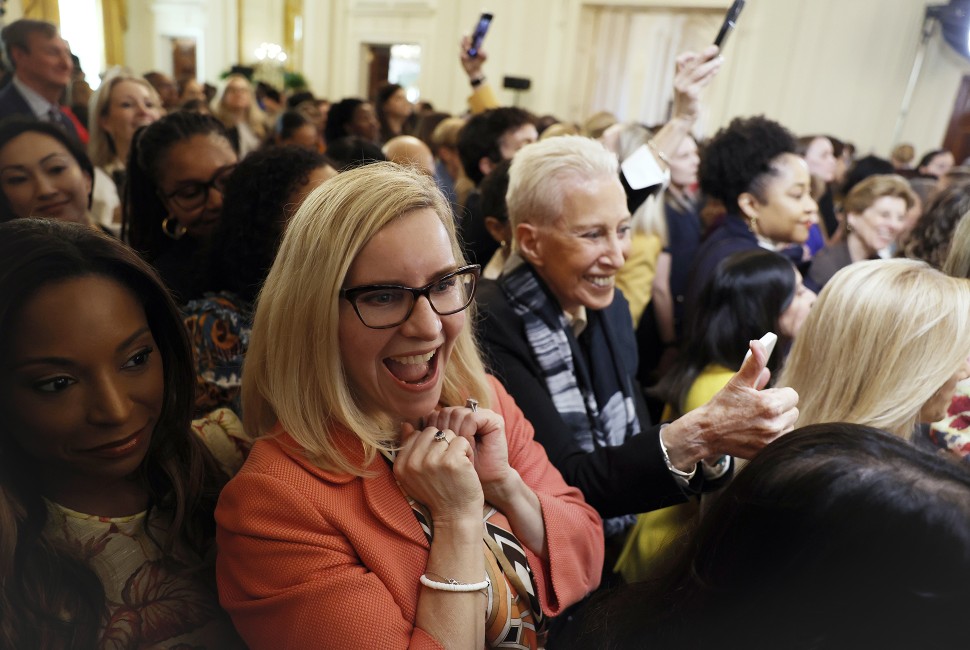President Joe Biden on Monday signed an executive order to expand and improve how the U.S. federal government funds health research about women, who historically have been and currently still are underrepresented in medical research.
The move comes just after President Biden’s State of the Union address in which he called on Congress to make an investment of $12 billion to create a Fund for Women’s Health Research at the National Institutes of Health (NIH).
Experts at Northwestern University Feinberg School of Medicine have published numerous studies that highlight the lack of sex inclusion in scientific and clinical research. Some have developed technology to help address the gap.
“I’m thrilled our administration has recognized the need for dedicated and sustained investment in women’s health research,” said Nicole Woitowich, executive director of the Northwestern University Clinical and Translational Sciences (NUCATS) Institute and a research assistant professor in the department of medical social sciences at Feinberg. “This is a monumental step forward for women and for advancing our health equity.”
“I am passionate about women’s health and making sure that we consider sex in biomedical research instead of continuing along with the assumption that everything works exactly the same in men and women, despite so many very obvious differences in health and disease,” said Barbara Stranger, associate professor of pharmacology at Feinberg who appeared in November 2023 in a virtual panel, “Sex as a Biological Variable,” convened by the NIH Office of Research on Women’s Health.
Recent Northwestern studies include:
Human disease simulator lets scientists choose their own adventure
“When something’s happening in the body, we don’t know exactly who’s talking to whom,” said lead scientist Julie Kim, professor of obstetrics and gynecology at Feinberg. “Currently, scientists use dishes that have one or two cell types, and then do in-depth research and analysis, but Lattice provides a huge advancement. This platform is much better suited to mimic what’s happening in the body, because it can simulate so many organs at once.”
Kim also was involved in the EVATAR project, a mini female reproductive tract in a dish, which enables scientists to conduct much-needed testing of new drugs for safety and effectiveness on the female reproductive system.
Women and men are each underrepresented in clinical trials across different medical fields
“Neglecting one sex in clinical trials — the gold standard scientific exploration and discovery — excludes them from health innovation and skews medical evidence toward therapies with worse efficacy in that sex,” said Jecca Steinberg, a medical resident in the department of obstetrics and gynecology at Feinberg.
Improving the study of sex-based differences in complex traits and disease
“The simplest thing we can do to consider sex as a potential influence on any kind of trait, disease or relationship is to disaggregate our data by male and female study participants. The problem with not doing these kinds of analyses means that you miss the opportunity for a more personalized-by-sex answer to whatever question you may have,” said Stranger, who also is a member of the Center for Genetic Medicine and the Robert H. Lurie Comprehensive Cancer Center of Northwestern University.
Stranger also led a study on how biological sex affects genes for body fat, cancer and birth weight.
Females still an afterthought in research
COVID-19 impacts men more seriously than women, critical information that resulted from research examining how the virus progresses differently based on sex.
But including sex as a variable in scientific research has been historically rare, leading to dangerous gaps in understanding how diseases, drugs and vaccines impact men and women differently.
A 2020 Northwestern Medicine study led by Woitowich, found females are still an afterthought in most scientific research.
The study was a 10-year follow-up to a 2009 groundbreaking study that found females were left out of biomedical research because of how their hormones might skew fragile study designs, an idea that has repeatedly been proven false. That left only male subjects to represent both men and women in research findings.


